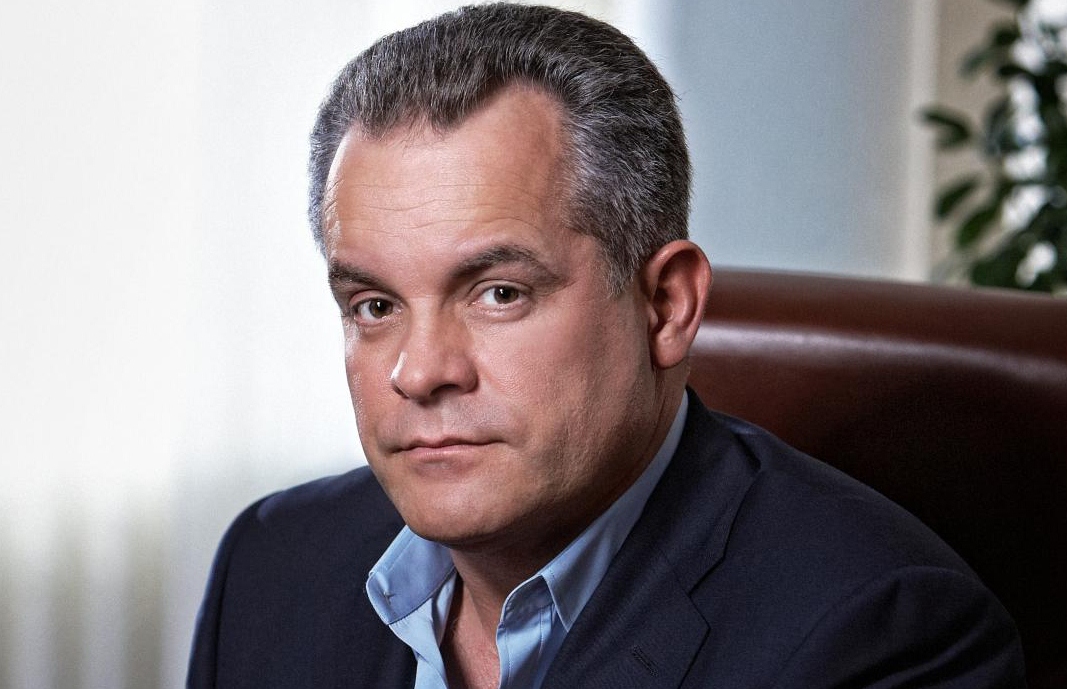
Political Factions Threaten to Derail Moldova’s European Course (Part One)
Publication: Eurasia Daily Monitor Volume: 10 Issue: 36
By:

Until a few days ago, Moldova was on course to sign or at least to initial an Association Agreement with the European Union this year. Moldova was outpacing the other countries in the EU’s Eastern Partnership program toward the goals of association and free trade with the EU. In recent months, Moldova became the only Eastern Partner country to be offered a prospect of eventual EU membership, conditional on performance, by top European officials. Within Moldova’s coalition government, Prime Minister Vlad Filat’s team holds the ministries implementing the EU-Moldova Action Plan (the ministries of foreign affairs, internal affairs, justice, finance). Filat and his team interact directly with the EU and European governments and have earned high-level European support.
Those goals, and the country’s whole institutional setup, are now threatened by the country’s wealthiest businessman, Vlad Plahotniuc, and his allies, who are attempting to remove Prime Minister Filat’s team or at least to slash its powers. Plahotniuc and his allies seek to retain their share of control over law enforcement agencies, which can be useful in protecting business interests. Plahotniuc operates inside the governing coalition through Parliament Chairman Marian Lupu’s Democratic Party, where Plahotniuc is officially deputy leader but calls the shots, including appointments to law enforcement services on this party’s quota (see below). They are now conducting criminal proceedings against Filat’s team for political intimidation. In parallel, unidentified perpetrators are eavesdropping on the prime minister’s phone conversations and disseminating bits from the intercepts. The coalition government’s third component is Mihai Ghimpu’s small Liberal Party, bitter rival to Filat’s Liberal-Democrat Party on overlapping segments of the electorate. Ghimpu is allied with the Plahotniuc-Lupu tandem to cut down Filat’s party.
In early February, the National Anti-Corruption Center headed by Democratic Party appointees launched criminal investigations against Finance Minister Veaceslav Negruta and Health Minister Andrei Usatii; and it threatened a criminal investigation against Internal Affairs Minister Dorin Recean. All three ministers belong to Prime Minister Filat’s Liberal-Democrat Party. To mitigate perceptions of selective law enforcement, the Anti-Corruption Center has also announced an investigation against Culture Minister Boris Focsa from Lupu’s Democratic Party.
On February 15, National Anti-Corruption Center chief Viorel Chetraru dispatched his agents armed with submachine guns, wearing combat uniforms and masks, to search government offices that are headed by Prime Minister Filat’s appointees. The Anti-Corruption Center detained the head of the Main Fiscal Inspectorate, Nicolae Vicol, for a 20-day term for investigation on vaguely phrased charges. The Anti-Corruption Center also searched the premises of Filat’s chancellery; and summoned the chancellery’s deputy head, Eduard Banaruc, for questioning on February 18. Those scenes were amply televised from footage supplied by the same Anti-Corruption Center (Unimedia, Jurnal.Md, Publika TV, February 15–18).
The February 15 morning raids were timed to the opening of Parliament’s 2013 session. Their instant goal was to intimidate Filat’s party into cancelling the motion to remove Plahotniuc from the post of first vice-chairman of parliament, in a vote scheduled for that same day. The first vice-chairmanship had been created specially for Plahotniuc in 2010, although it is not provided for in the Constitution. The motion nevertheless went ahead and abolished Plahotniuc’s post with the Liberal-Democrat Party’s votes and those of the Communist opposition. Beyond that immediate issue, however, the raids and investigations are overtly aimed at generating criminal charges motivated politically against Filat’s team or his appointees. Vicol’s 20-day preliminary detention is widely seen as designed to pressure him into making those kinds of allegations for political use by the Anti-Corruption Center. Indeed on February 18, the Center’s Chetraru implied that Vicol was being pressured by higher-ups to participate in tax-related corruption. In his turn, Chetraru stepped up pressure on the government by announcing that his Center would call in Filat with [unnamed] ministers and others for questioning (Publika TV, February 18).
On February 18, an anonymous group self-titled “Prosecutors for Truth” disseminated bits from purported recordings of the prime minister’s and internal affairs minister’s telephone conversations with the same Vicol. Most of these selective bits do not seem to reveal criminal activity or intent, but rather some political instructions to the Fiscal Inspectorate chief. In one case, Filat is heard instructing Vicol to stop unfair tax pressures against the German automobile components manufacturer Draexlmaier, following complaints by the German ambassador in Chisinau. The Draexlmaier company is one of the main European investors in Moldova, with factories in Chisinau and Balti (Unimedia, Jurnal.Md, February 18–20).
No court has authorized those wiretaps. No one knows whether these may be the first bits from more extensive, unlawful intercepts at the disposal of those seeking to topple the government. While unauthorized wiretaps may not be used as evidence in a court of law, their political impact can potentially destabilize Filat’s team. Intercepting the prime minister’s telephone—while also searching his chancellery by armed agents on behalf of one faction in the government—is in any case an assault on Moldova’s state security.
The Anti-Corruption Center is not known to possess the technical equipment for such eavesdropping. The Security and Information Service (the main state security agency) is believed to possess such equipment, but this is only guesswork, and it seems entirely possible that private interests conducted the eavesdropping on the prime minister. Filat’s Liberal-Democrat Party has requested the General Prosecutor’s Office to launch a criminal investigation into the wiretapping. It described this unlawful action as a blow to national security and—alluding to Plahotniuc—as political blackmail on behalf of one individual (Moldpres, February 19).
From the moment of his removal as first vice-chairman of parliament on February 15 (see above) to date, Plahotniuc has insisted that his removal must necessarily trigger Prime Minister Filat’s immediate resignation for the sake of balance in the governing coalition. Lupu’s Democrats and Ghimpu’s Liberals are closely following Plahotniuc’s line in their daily statements to date (Unimedia, Jurnal.md, February 20–26).
Aware that the prime minister’s resignation would ipso facto entail that of the entire government, Lupu and Ghimpu want an interim prime minister and caretaker government, so as to force a re-distribution of powers and institutions in their own favor. They are calling for such a re-negotiation “from a zero basis.” They pretend that Plahotniuc and Filat represent symmetrical political factors in the coalition, although this is obviously not the case. Plahotniuc has no official leadership post and no popular mandate; whereas, Filat has such a mandate as prime minister, and his party holds more parliamentary seats (31) than Lupu’s and Ghimpu’s parties combined (15 and 12, respectively). Retaining and expanding these two parties’ share of government portfolios, crucially including quotas in law enforcement agencies, seems more important to them than the continuity and success of Moldova’s European integration course.
Indirectly, however, the attempt at accrediting a Filat-Plahotniuc symmetry reflects the reality of two competing power centers in this coalition government. Some of Ghimpu’s disappointed supporters in the press are urging him to “demonstrate that he is not in Plahotniuc’s pocket” (Nicolae Negru in Jurnal de Chisinau, February 22). Lupu, however, does not seem to be asked or expected to demonstrate this.




